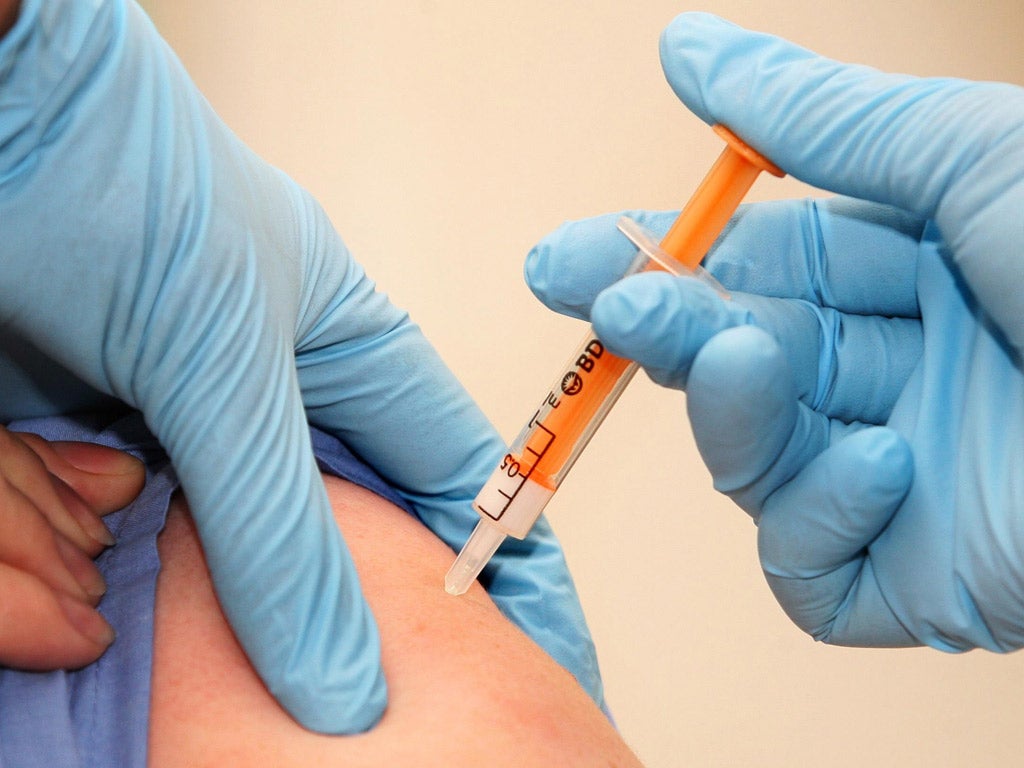NHS 'should pay' mental health patients to take medication
Tests showed that rate of patients adhering to their treatments rose

Your support helps us to tell the story
From reproductive rights to climate change to Big Tech, The Independent is on the ground when the story is developing. Whether it's investigating the financials of Elon Musk's pro-Trump PAC or producing our latest documentary, 'The A Word', which shines a light on the American women fighting for reproductive rights, we know how important it is to parse out the facts from the messaging.
At such a critical moment in US history, we need reporters on the ground. Your donation allows us to keep sending journalists to speak to both sides of the story.
The Independent is trusted by Americans across the entire political spectrum. And unlike many other quality news outlets, we choose not to lock Americans out of our reporting and analysis with paywalls. We believe quality journalism should be available to everyone, paid for by those who can afford it.
Your support makes all the difference.The NHS should consider paying patients with severe mental illness to take their medication, a leading expert has said, after a study showed that offering “modest financial incentives” significantly improved adherence to antipsychotic treatments.
While admitting that the idea was “controversial”, Professor Stefan Priebe of Queen Mary, University of London, said that there was now “no denying” that incentives worked and called for them to be considered in scenarios where patients were being put at risk by missing doses.
His call follows the conclusion of a study in which patients with schizophrenia, schizoaffective disorder and bi-polar disorder, who had been prescribed and consented to long acting antipsychotic injections, were given a £15 incentive for each injection they gave themselves over a 12-month period.
At the start of the trial, average adherence to drug treatment among this group was 69 per cent, but rose to 85 per cent for the 12 months that incentives were offered. Levels of adherence in a control group of patients who were not offered incentives increased only slightly, from 67 per cent to 71 per cent.
Patients in the incentive group were also more likely to take nearly every dose – with 28 per cent of them achieving 95 per cent adherence compared to just five per cent in the control group.
The research is published in the British Medical Journal.
Professor Priebe said that many “mainstream methods” of improving adherence to mental health treatments had failed and alternatives needed to be explored.
“In lots of areas of medicine it doesn’t make too much difference if a patient misses a certain proportion of prescribed medicine,” he said. “However, among patients with severe mental illness, just missing one or two doses of antipsychotic drugs poses a high risk of relapse. In these circumstances a relapse can be very difficult; involving re-hospitalisation and highly distressing symptoms for both patients and their carers.”
However, the UK’s leading mental health charity, Mind, said that financial incentives were inappropriate because they might influence a patient’s decision to consent to a long-term drug treatment or not.
Alison Cobb, the charity’s senior policy and campaigns officer, said: “Making a decision about whether or not to take medication should be based on the efficacy of the drug, rather than a monetary incentive. People with mental health problems are more likely to experience debt and unemployment; and rely on support from benefits, so the ‘modest’ incentive offered within this study could be enough to influence their decision.
“Antipsychotic drugs are known to have a range of potentially serious adverse affects, so should only be taken when the benefits outweigh the side effects, and not because there is a financial reward involved,” she added. “People with mental health problems should be offered a wide range of treatments, not just drugs; and those taking antipsychotics should be closely monitored.”
There is currently no national guidance on financial incentives for mental health patients to encourage adherence to medication, but the National Institute of Health and Care Excellence (NICE) has recommended that “modest financial incentives” or vouchers can be offered to patients who misuse drugs in reward for “positive behaviours” such as reducing drug use.
Join our commenting forum
Join thought-provoking conversations, follow other Independent readers and see their replies
Comments